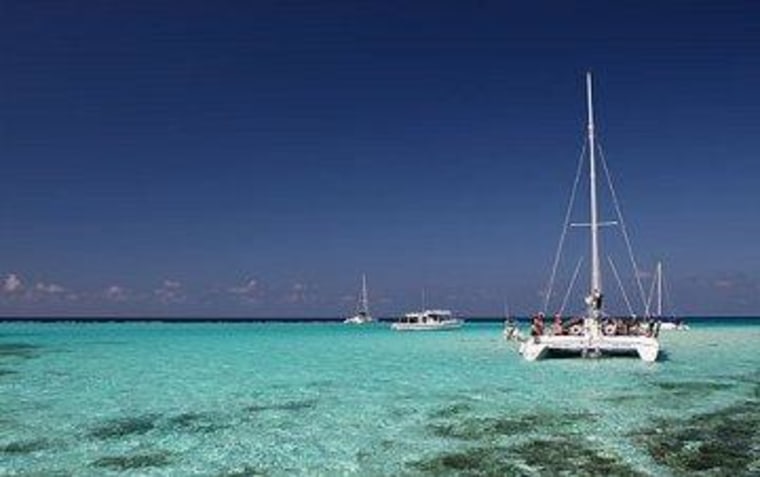In some ways, Mitt Romney is a walking, talking self-refutation of his own economic agenda. The Republican presidential candidate believes if Washington uses tax policy to put more money in the hands of the very wealthy, those "job creators" will pump those gains right back into the Americans economy, benefiting everyone else as the capital trickles down.
Romney, meanwhile, is extremely wealthy, has benefited greatly from tax breaks, and sent much of his money overseas. It would appear Romney's wallet has debunked Romney's economic agenda.
Rhetoric notwithstanding, questions about the candidate's offshore investments aren't going away.
Mr. Romney, responding to opponents' barbs about his use of overseas tax havens, has offered a narrow defense [of his offshore holdings], saying only that the investments, many made through the private equity firm he founded, Bain Capital, have yielded him "not one dollar of reduction in taxes."A review of thousands of pages of financial documents and interviews with tax lawyers found that in some cases, the offshore arrangements enabled his individual retirement account to avoid taxes on its investments and may well have reduced Mr. Romney's personal income tax bills. But perhaps a more significant impact of Mr. Romney's offshore investments has been on the profit side of the ledger -- in the way Bain's tax-avoidance strategies have enhanced his income.
When Romney released his 2011 tax returns, the materials came with a campaign-written FAQ that insisted he wasn't evading or reducing his tax burden by stashing his cash in the Caymans. That wasn't quite true. In reality, Romney put his money into funds that in turn evaded taxes through Cayman accounts.
The New York Times report moves the ball forward by focusing on a related angle: Romney reduced his tax burden by using Bain Capital offshore investment strategies. As Laura Clawson explained, "In other words, Bain avoided the taxes through complicated offshore investment strategies, increasing Romney's profits. Then, Romney's own tax bills on those tax avoidance-inflated profits were, most likely, further reduced by the location of his investments in the Cayman Islands and other notorious tax havens."
And why doesn't everyone do this?
Because, as the NYT added, "elite investors like Mr. Romney are able to increase their fortunes in ways unavailable to most taxpayers."
One set of opportunities for Romney, another for those Romney perceives as lazy parasites who refuse to "take personal responsibility and care for their lives."
